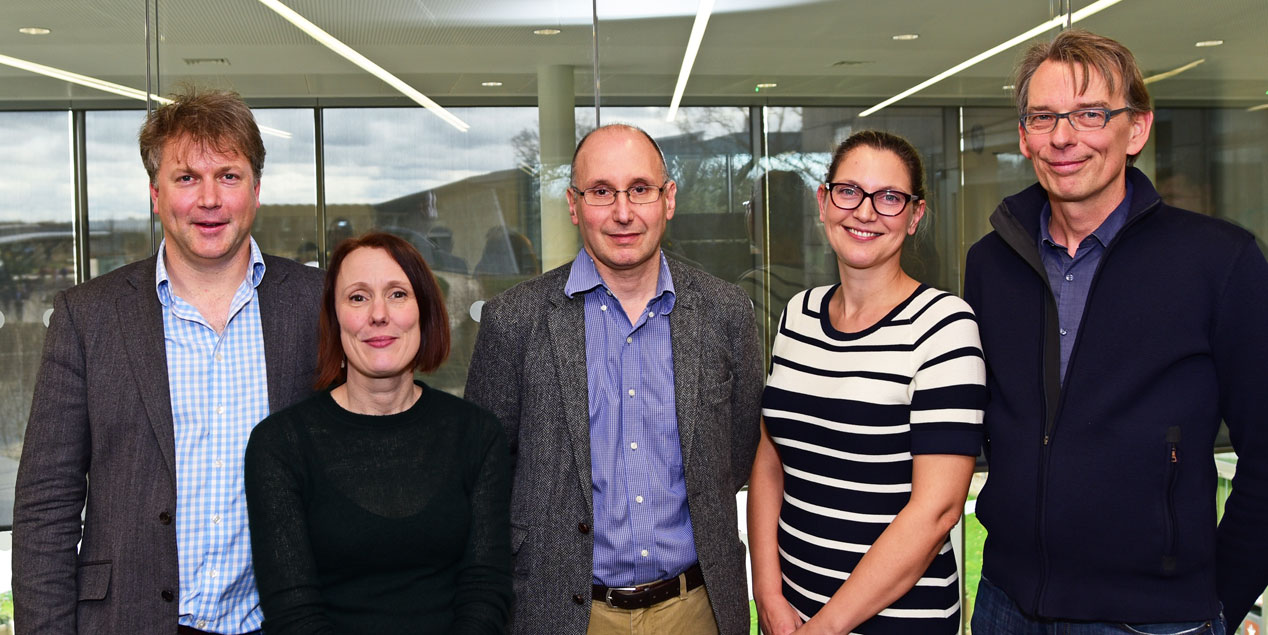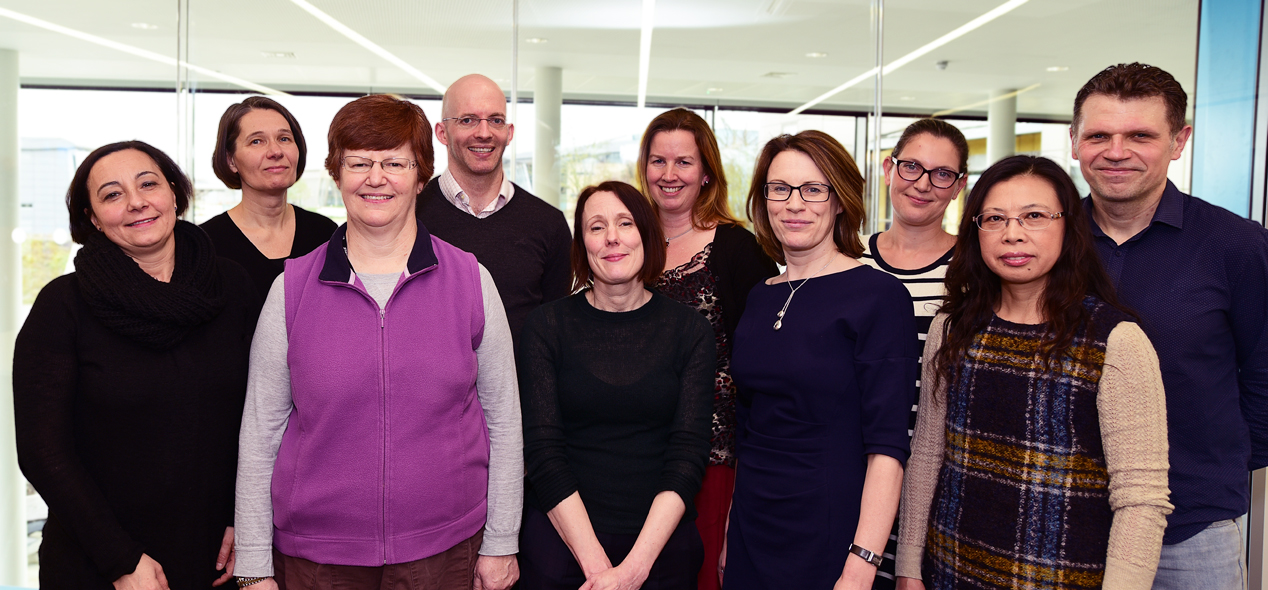Role models recognised for supporting women in science

Sanger Institute Group leader, Eleftheria Zeggini was awarded for her leadership, not only in the Sex in Science and Athena SWAN programmes, but more widely. Through her leadership as a scientist, a group leader and as a member of faculty at the Sanger Institute, Ele has demonstrated the qualities of an excellent role model for women in science.
Her nomination reads: “Ele is an exemplary role model and provides leadership and influence that has delivered tangible working practices at the Institute, and has driven a perceptible cultural shift in the attitudes towards women in the workplace, which has permeated throughout the organisation.”
Ele has led on the implementation of changes including those to the faculty model at the Sanger Institute which allow for flexible extensions of contracts due to career breaks, for example by one year per child for maternity leave. She has also founded initiatives such as the Janet Thornton Fellowship, which supports scientists returning to research after a career break of 12 months or more.
“It’s a great honour to be nominated and to be bestowed this award. It truly reflects the collective effort of many colleagues who have been members of the Sex in Science and Athena SWAN teams over the years.”
Eleftheria Zeggini Group Leader at the Sanger Institute and winner of a 2017 Sex in Science Best Practice Award

Her nomination reads: “Helen actively supports measures known to benefit women, including flexible working hours and improved maternity leave, and provides guidance on how to better balance work and home life, striving for excellence in both.”
“I feel very honoured, thank you very much for the award. Being involved in Sex in Science has really changed the way that I think about how work is done in my group and how my team works. In my group, we want to make sure that there’s a good work-life balance. We try to make sure we give people adequate notice for meetings, acknowledging that people may have childcare commitments, and we try to support those people in that regard. It’s changed the way I think about how we do things.”
Helen Parkinson Head of the Molecular Archives, Team Leader at EMBL-EBI, and winner of a 2017 Sex in Science Best Practice Award
Everyone on campus, scientific and non-scientific alike, was invited to nominate a colleague who had made a positive difference to women’s careers.
The nominees included: Inês Barroso, Jyoti Choudhary, Nicola Corton, Treasa Creavin, Rachel Curran, Rob Finn, Yvette Hooks, Jo Jones, Anna Middleton, Serena Nik-Zainal, Claire O’Donovan, Sandra Orchard, Sharon Peacock, Robert Petryszak, Nicole Soranzo, Oliver Stegle, Klaudia Walter, Theodore Whipp and Yali Xue.
“We have the Best Practice Awards to celebrate the people in our institutions who really make a difference to the way gender issues are dealt with on campus. If we continue to be a supportive place for women, in particular those who work at the senior level, then we will have a larger talent pool and a much more effective Institute as well.”
Ewan Birney Director of EMBL-EBI
“To me it is very important that we celebrate International Women’s Day each year. The honouring of two people who have contributed profoundly to furthering understanding of gender imbalances and to rectifying them is a privilege for the Institute. It further reminds us that, whilst we are collectively active as an organisation in addressing a major and long-standing issue in science and wider society, there is much more to be done.”
Professor Sir Mike Stratton Director of the Sanger Institute
More information
Selected websites
European Bioinformatics Institute (EMBL-EBI)
The European Bioinformatics Institute is part of EMBL, and is a global leader in the storage, analysis and dissemination of large biological datasets. EMBL-EBI helps scientists realise the potential of ‘big data’ by enhancing their ability to exploit complex information to make discoveries that benefit mankind. It is a non-profit, intergovernmental organisation funded by EMBL’s 21 member states and two associate member states. Its 570 staff hail from 57 countries, and it welcomes a regular stream of visiting scientists throughout the year. EMBL-EBI is located on the Wellcome Genome Campus in Hinxton, Cambridge in the United Kingdom.
The Wellcome Trust Sanger Institute
The Wellcome Trust Sanger Institute is one of the world’s leading genome centres. Through its ability to conduct research at scale, it is able to engage in bold and long-term exploratory projects that are designed to influence and empower medical science globally. Institute research findings, generated through its own research programmes and through its leading role in international consortia, are being used to develop new diagnostics and treatments for human disease.


